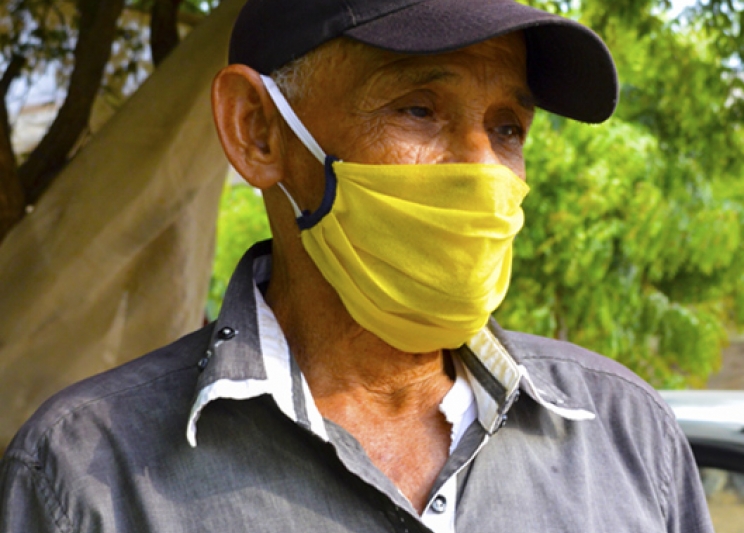By Bridget Sleap, Senior Rights Policy Advisor of HelpAge International
As countries pass the peak of the COVID-19 pandemic, governments around the world are discriminating against older people and putting them at risk of ill-health and abuse in the strategies they are adopting to bring us out of lockdown.
At HelpAge International we have been tracking discrimination against older people related to COVID-19 restrictions throughout the pandemic and have seen examples of age-based measures in at least 48 countries across the globe.

As the Philippines comes out of lockdown, people over the age of 60 have not been allowed to leave their homes, even in moderate- and low-risk areas for COVID-19.
People over the age of 65 have been forbidden from leaving their homes in Tunisia and Azerbaijan and many areas of Russia.
And people over the age of 60 have been banned from visiting restaurants in Dubai and Abu Dhabi and shopping malls in Abu Dhabi.
Any measures to take us out of lockdown that restrict our rights must be based on scientific and medical evidence – not on age. They must be temporary and reviewed regularly so that they are only used when strictly necessary and in accordance with the law. They must also cause the absolute minimum of harm to achieve a legitimate aim.
Containing the spread of the virus is a legitimate aim but we must not use a sledgehammer to crack a nut. Long periods of isolation are dangerous for older people’s physical and mental health.
Being confined at home for long periods of time can put older people at increased risk of domestic violence. We have received evidence from several of our network members around the world that calls to helplines from older people reporting domestic abuse are increasing.
We have also heard reports of older people who have been unable to access their pensions and denied the means to support themselves through informal work. Likewise, older people with chronic diseases have been unable to access life-saving medicines.
Any measures to stop the spread of the virus should also not discriminate. Age-based measures are used in all walks of life – from when we start school to when we can claim a pension – but when they restrict older people’s human rights, compared to younger people’s, they are discriminatory.
Singling out older people stigmatises them and reinforces ageist stereotypes of them as weak and vulnerable.
The reality, however, is very different. Older people play important and varied roles in society and can, along with everyone else, be part of the solution that will help reduce the spread of the pandemic, bring us out of lockdown and support those who have been affected by COVID-19.
Restricting their movement is not the way to achieve this. Amongst other things, many older people live with younger family members and staying at home while those they live with go out does nothing to address the risk of contracting the virus within their household.
Alternative measures for coming out of lockdown which minimize the risk of infection for everyone and help build more cohesive societies must be found.
These measures could include phasing the restart of economic or social activities based on the level of physical interaction involved. Mass gatherings should be limited and public health measures maintained, ensuring hand washing, wearing masks and safe, physical distancing. Testing should be more widely adopted and accessible information would enable everyone to assess their risk and exercise their own judgement.
This pandemic has shown how badly things can go wrong when people’s human rights are not protected. Its time age discrimination was taken as seriously as other forms of discrimination. We must ensure that everyone’s right to equality and non-discrimination, including older people’s, is upheld now and in the future.
END
